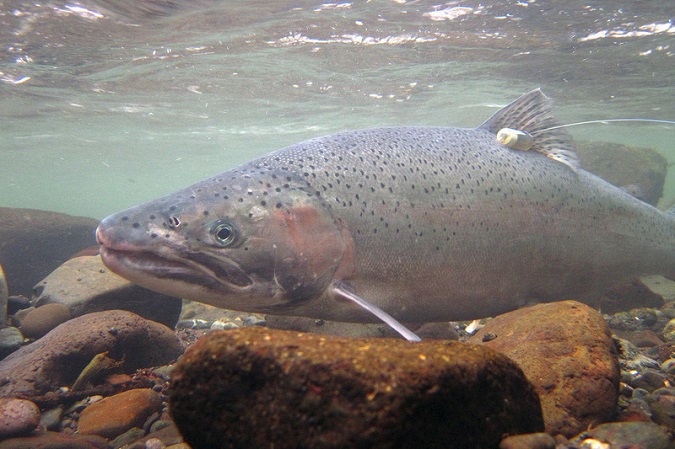
NOAA Fisheries has determined that Idaho’s Fishery Management and Evaluation Plan (FMEP) for their recreational steelhead fishery provides necessary protections for salmon and steelhead listed under the Endangered Species Act (ESA). NOAA fisheries has approved Idaho’s plan under section 4(d) Rule.
Under section 4(d), NOAA Fisheries can specify how an activity can be exempt from additional ESA regulations. This applies particularly to “take,” which can include any act that kills or injures fish, and may include habitat modification. The ESA prohibits any take of species listed as endangered, but some take of threatened species that does not interfere with survival and recovery may be allowed.
“Idaho has developed a plan that provides continuing recreational fishing opportunities while ensuring that ESA-listed salmon and steelhead have the protection they need to recover,” said Allyson Purcell, Branch Chief in NOAA Fisheries’ West Coast Region.
Idaho’s plan came together through collaboration with fishery managers across the Snake River Basin and includes a new basin-wide framework designed to limit total impacts on steelhead from all fisheries in the Snake River Basin. Under Idaho’s plan, fishermen will continue to be required to release any wild steelhead they encounter.
The plan will also limit impacts of Idaho’s steelhead fishery on other ESA-listed species, such as Snake River sockeye and Snake River fall Chinook salmon. Furthermore, Idaho will be implementing new low-abundance thresholds that will trigger implementation of additional conservation measures when natural-origin steelhead abundance is projected to fall below threshold levels.
“The framework is responsive to changing conditions, and it will provide additional protections when the abundance of wild steelhead falls below critical abundance levels,” Purcell said. “We received over 1000 letters from fishing groups, environmental groups, government officials, and interested citizens during our public comment period on Idaho’s proposed plan. This level of involvement demonstrates how important these fish are to the Pacific Northwest communities.”
Related
